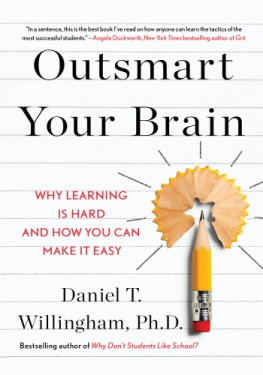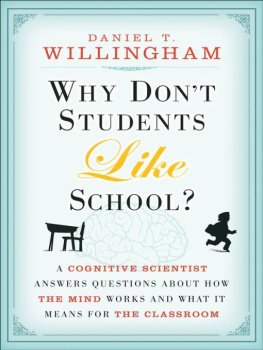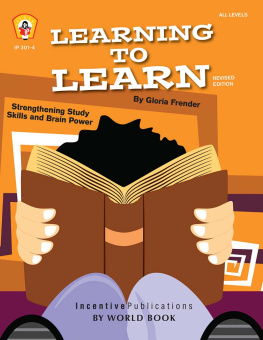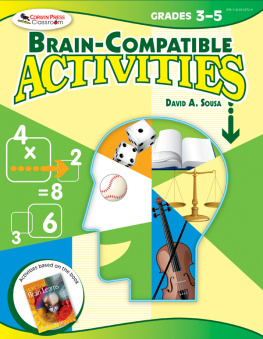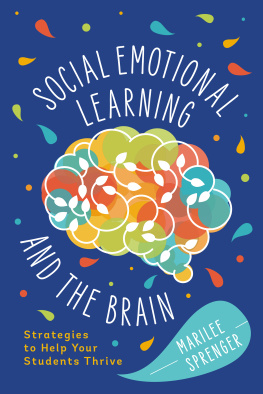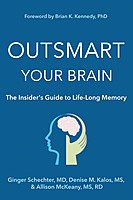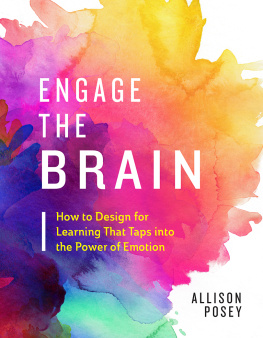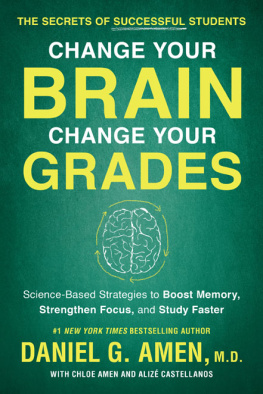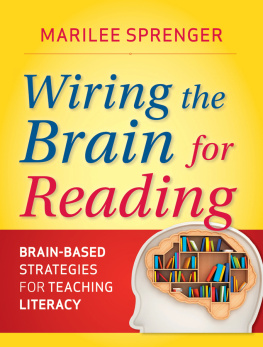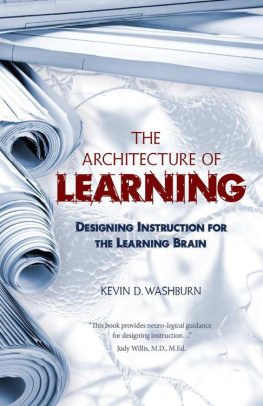Advance Praise for Outsmart Your Brain
In a sentence, this is the best book Ive read on how anyone can learn the tactics of the most successful students. Practical but backed by the latest science, Outsmart Your Brain is an on-ramp to the virtuous cycle of interest, confidence, and achievement.
Angela Duckworth, New York Times bestselling author of Grit
If left to our own devices, humans will usually study poorly. Luckily, Dan Willingham has identified all the ways we can trick our brain into learning (before it tricks us first). A users guide to the students brain.
Amanda Ripley, New York Times bestselling author of The Smartest Kids in the World
The ultimate guidebook for doing well in school, and the perfect gift for any student heading off to college, and also for the high school student who is beginning to care about grades, orbetter yetactual learning.
Jonathan Haidt, New York Times bestselling coauthor of The Coddling of the American Mind
Brisk and interesting, this is a wonderful book with a wealth of practical advice for students in how to chapters on many topics. I would also recommend the book for teachers and lifelong learnersanyone who cares about learning.
Henry L. Roediger III, coauthor of Make It Stick: The Science of Successful Learning
Willingham does double duty: he places the power to learn back where it should be, in the hands of students, while showing teachers how to harness the most effective systems and techniques for boosting learning. An essential tool for the new school year, every bit as important as that calculator, handful of sharpened pencils, and stack of notebooks.
Jessica Lahey, New York Times bestselling author of The Gift of Failure
Thank you for downloading this Simon & Schuster ebook.
Get a FREE ebook when you join our mailing list. Plus, get updates on new releases, deals, recommended reads, and more from Simon & Schuster. Click below to sign up and see terms and conditions.
CLICK HERE TO SIGN UP
Already a subscriber? Provide your email again so we can register this ebook and send you more of what you like to read. You will continue to receive exclusive offers in your inbox.
This book is dedicated to
Sherry Willingham Segundo
and Judy Willingham Shimm
INTRODUCTION
W hen you started preschool, your teachers and parents had no expectation that you would be responsible for your own learning. No parent has ever said to a five-year-old, Your teacher tells me that youre not really giving your best when it comes to learning your colors. She also says that you dont fingerpaint like you really mean it. I dont see why I should keep paying for preschool if youre not going to apply yourself! It was your teachers responsibility to create an environment where you would learn.
But by your early teens, school had morphed into a format where you carried much greater responsibility for your own learning. The teacher lectured while you took notes; at home, you read textbooks, completed assignments, and studied for tests. This class format meant your teachers expected that you knew how to (1) set priorities and plan your schedule; (2) read difficult content independently; (3) avoid procrastination; (4) memorize content; (5) avoid distractions; (6) judge when you had studied enough; (7) show what you knew on a test; and (8) deal with emotions like anxiety that interfere with learning. And if you didnt do those things well, it was your problem, not the teachers. In short, you were expected to be an independent learner.
But your brain doesnt come with a users manual. Independent learning calls for many separate skills, and you needed someone to teach them to you. Most likely, no one did. Surveys of college students show that the vast majority devise their own strategies for studying, avoiding procrastination, and so on. But the strategies they come up with usually arent very good. Thats why I wrote this book. Its a users guide to your brain that will allow you to fully exploit its learning potential and so become an independent learner.
How I Came to Write This Book
My primary motivation in going to graduate school was not an altruistic wish to help people learn but a selfish wish to become a professor, because I believed that professors didnt have bosses. (That turned out to be less true than I thought but more true than I probably deserve.) I entered a psychology doctoral program with a lets-see-how-this-goes attitude, which is exceptionally stupid planning.
But I got lucky. I found myself fascinated by the human mind and especially human learning. I finished the program with enthusiasm, and I lucked into a job teaching at a college. My research concerned memory, but it was pretty technical and removed from everyday life. Youve heard the joke about the guy who gets a PhD, whereupon his mother explains to her friends, Hes a doctor, but not the type who helps people. I was a learning researcher, but not the type who helps you learn.
So it went for about ten years. One day I got a phone call from a near stranger, inviting me to come to Nashville to deliver a lecture on learning to five hundred teachers. I politely pointed out that I didnt know anything about teaching because I was a doesnt-help-you type of researcher. He said, Sure, we get that. We just think teachers would find it interesting. Puzzled but flattered, I said, Okay.
Six months later it was time to write the talk, and I panicked. Obviously teachers know how children learn; what could I possibly say that they didnt already know? I considered backing out, but I knew it was too late for the event organizers to replace me. I threw together a fifty-minute talk, plucking a few ideas from the introductory course on cognition that I had been teaching to college sophomores. I was so certain the talk would flop that half an hour before it started I asked my wife (a teacher), whom I had dragged to Nashville for my first talk about teaching, not to attend.
But to my considerable surprise, it was a success. Teachers didnt know the content, even though it covered material youd take in your very first course on learning. Furthermore, they saw it not as abstract but as useful in their classrooms.
My career changed course. I thought teachers could benefit from knowing what scientists have figured out about how people think and learn, so I started writing articles and books that explained it.
I also started thinking about how this information applied to my own students. I added a how to study lecture to my introductory course on cognition. Students said it was useful, but their grades didnt change much. I had focused on efficient ways to commit information to memory, so I guessed that there must be other aspects of studying that caused problems.
When students came to my office for help, I started asking more questions about their study habits and strategies. I asked them to bring their textbooks and notebooks to our meetings so we could talk about how they read and took notes.
I learned that my students struggled for many reasons, not just poor memorization strategies. Some didnt know how to comprehend a complex book chapter, some procrastinated, some had trouble understanding lectures, some choked when they took a test, and so on.
After about a year I felt I was getting pretty good at diagnosing where the problem lay for any given student. But I wasnt great at getting students to change how they studied, which, to be honest, I thought was strange. They came to me because they knew things werent going well. Why not try my advice?
Why Your Brain Must Be Outsmarted
I solved the puzzle by accident. A student asked me how I had become interested in memory, and I was reminiscing about a course I had taken in graduate school. I was so struck by the

